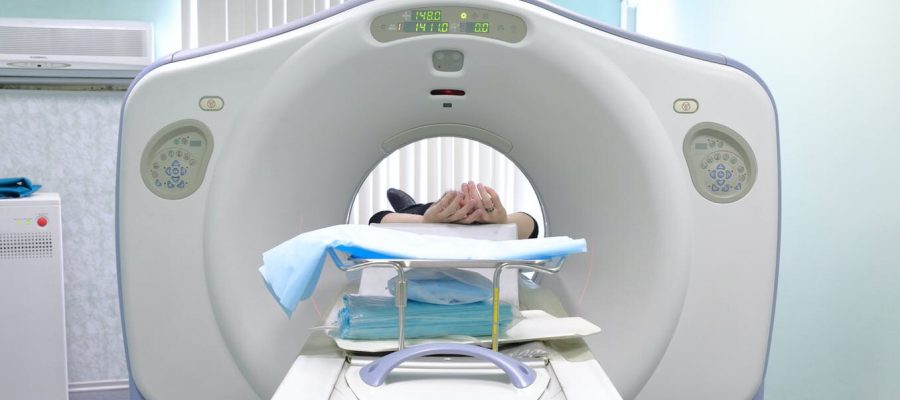
Unlike the COVID-19 pandemic, the cancer pandemic has raged on for centuries, though it similarly afflicts people in all corners of the world. In 2020 alone, over 19 million people were diagnosed with cancer globally, and almost 10 million people die from cancer every year.
The COVID-19 pandemic has been devastating to those infected with the SARS-CoV-2 virus, with over 481 million confirmed cases and 6.1 million deaths.
The number of people who have fallen ill or died due to unintended consequences of pandemic control measures has yet to be determined, though these invisible costs of COVID-19 control measures are likely to be substantial.
I am a cancer doctor and health services researcher, and my team has found new evidence that will help count the invisible cost of the COVID-19 pandemic to the cancer pandemic.
Consequences for cancer
For people with cancer, the direct consequences of the pandemic include a potentially greater risk of severe COVID-19 infection. The indirect consequences include delayed diagnosis of cancer, deferred tests and treatment delay. For example, we observed a seven-fold drop in biopsies required for skin cancer diagnosis in Ontario early in the pandemic, with a backlog of over 45,000 cases remaining six months later.
Large drops in cancer diagnoses and cancer surgeries have been observed across Canada and internationally. For example, in Ontario, we saw a 34 percent drop in cancer diagnoses and a 60 percent drop in cancer surgeries at the start of the pandemic in 2020. Most concerning is the slow recovery of cancer services following lockdown, leading to diagnostic and treatment delays for those with cancer.
These delays in diagnosis and treatment have many consequences. There are effects on quality of life and mental health while awaiting care. Waiting for cancer care can lead to worsening symptoms and progression to a more advanced stage in some cases. Treatments for more advanced cancer can have more side-effects and may not be as successful.
Treatment delays and survival
To provide evidence to guide the health system response to cancer delays in the midst of the pandemic, our unit performed a study of high-quality evidence on the impact of cancer treatment delays on survival.
We used information from over 1.2 million cancer patients from 34 high-quality studies on 17 conditions where surgery, radiation or systemic therapy are routinely used. We studied seven types of cancer—bladder, breast, cervix, colon, rectum, lung and head and neck—that together represent 44 percent of all cancers diagnosed worldwide, every year. We measured the survival impact per four-week delay.
Our report published in BMJ found that across seven cancer types, a delay of even four weeks could be associated with reduced survival. For example, cancer surgeries for breast, colon, bladder and head and neck sites were associated with a mortality increase between six and eight percent for each four-week delay. Sex, advanced age and socio-economic factors were often associated with disparities in waiting times. As the delay increased, the impact on survival became even greater.
What does this mean in practical terms? A team from McGill University and the Canadian Partnership Against Cancer (CPAC) developed a model using information from our study on treatment delay and survival. They found that between 2020 and 2030, disruptions to cancer care during the COVID-19 pandemic could lead to about 20,000 additional deaths from cancer in Canada.
Given that the pandemic has affected global cancer care and that outside of Canada over 19 million people are diagnosed with cancer each year, the global additional deaths from cancer care delays could be substantial.
Implications for care
We now have standardized information covering seven cancers and all three major cancer treatment types demonstrating a link between waiting longer for cancer treatment and worse survival outcomes. If we had a new cancer drug that improved outcomes as much as timely treatment did in our study, societal precedent suggests we’d pay in the five figures per patient for it.
So now what? More research needs to occur in this space. The impact of cancer care delay on more conditions needs to be studied and methods need to be standardized. However, there are important implications for care now.
Given the massive backlog in health services due to the pandemic, investment is needed and is happening at the federal level. This is welcome and important. For example, a 10 percent increase in treatment capacity could reduce the predicted mortality impact of the pandemic delay in Canada from about 20,000 to 4,000.
As we face other health emergencies and possibly further waves of the COVID-19 pandemic, caution needs to be taken when extending cancer waiting times for reasons unrelated to a patient’s health-care needs. The impact of these delays on cancer patients may take years to emerge, but they can be expected and must be factored into decisions on prioritizing and protecting limited health resources.
During the pandemic, keeping hospitals, clinics and staff safe from COVID-19 infection can ensure optimal resources for timely diagnosis and cancer care. Centralized waiting lists and team-based care for surgery and other services can ensure equitable waiting times for treatment.
Finally, innovation in how care is delivered (for example, learning health systems) and in the care provided (for example, treatments requiring fewer visits to hospital or less human resources) are very important.
Source: Read Full Article
